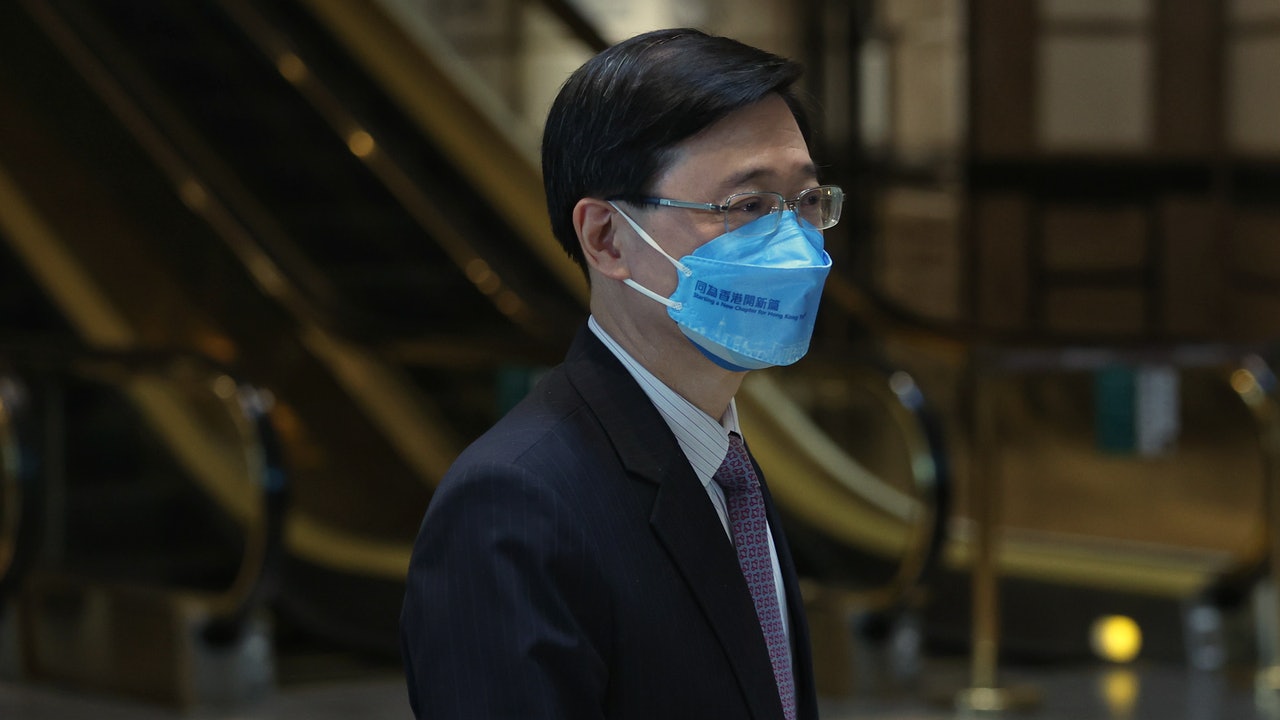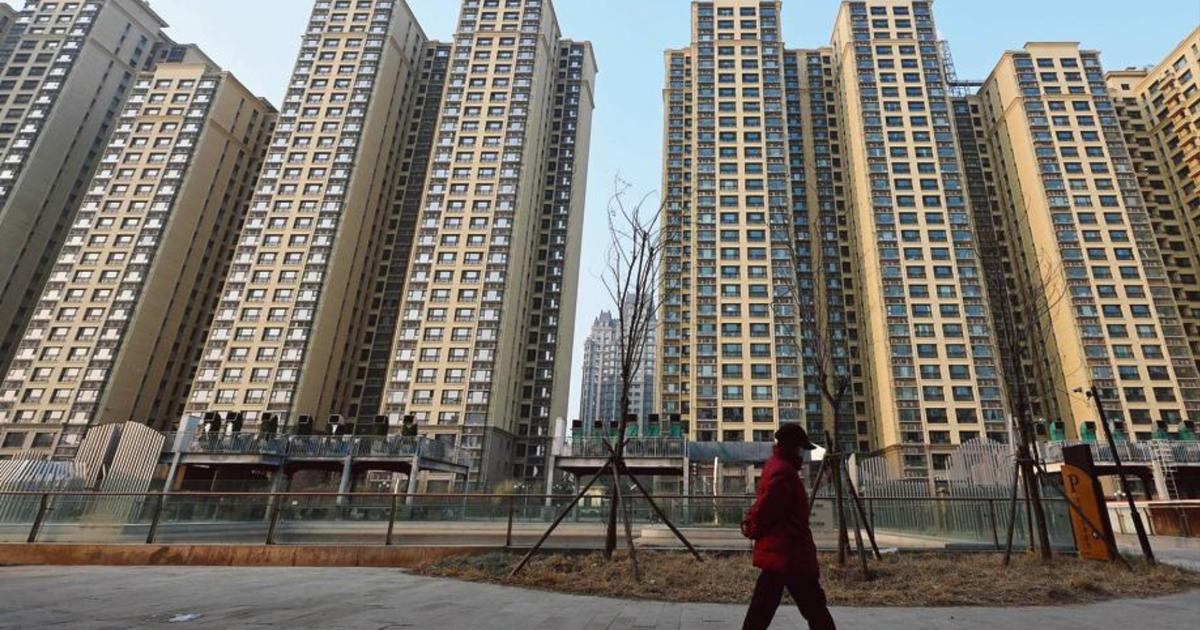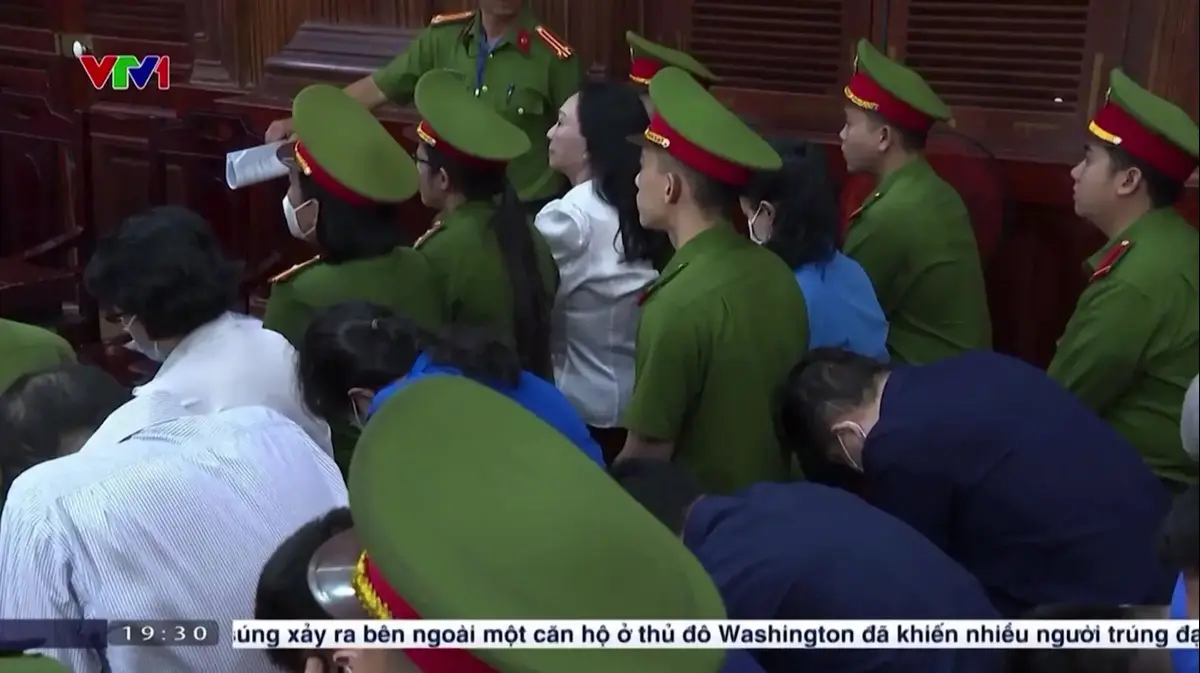As Hong Kong celebrates the 25th anniversary of its return to the motherland, it is also a time to face unprecedented challenges.
Hong Kong not only has to face new challenges such as the sudden Russian-Ukrainian war, the return of Chinese stocks, the new crown epidemic, the loss of foreign institutions, and the US interest rate hike, but also to solve the housing problem, reform the government governance team, and reorganize the political and business governance alliance , deep integration into the mainland and other old challenges.
Under these nine old and new challenges, what answer the new chief executive will deliver in the future, and how he will lead Hong Kong into the second 25 years, deserves attention from all walks of life.
Contributing author: Liang Haiming
Five new challenges: the Russian-Ukrainian war, the return of Chinese stocks, the
new crown epidemic, the loss of foreign capital, and the US interest rate hike
The first new challenge concerns the impact of the Russian-Ukrainian war on Hong Kong.
The deadlock in the Russia-Ukraine war is difficult to resolve. Although the war is between Russia and Ukraine, the contest is between Russia and the United States, as well as between China and the United States, and it is more related to the evolution of the overall world pattern.
Objectively speaking, the conflict between the US, Europe and Russia may bring a short-term buffer to Sino-US relations.
Some Russian financial institutions, tycoons and top scholars may consider relocating their assets and research projects to Hong Kong in order to evade sanctions from Europe and the United States.
Moreover, the U.S. sanctions against Russia have unexpectedly accelerated the development of global non-U.S. trade and financial payments, and enhanced the international status of the RMB. As an international financial center and the world’s largest offshore RMB hub, Hong Kong not only has the opportunity to face a relatively looser In the international atmosphere, it is even possible to "get both people and money".
However, the challenges brought to Hong Kong by this war are still enormous.
On the one hand, Europe and the United States imposed unprecedented severe sanctions on Russia, which brought secondary disasters.
The Biden administration of the United States has made it clear to the Chinese government that if its actions undermine the sanctions imposed by the United States on Russia, there will not only be consequences, but will even be sanctioned by the United States and Europe.
The resulting fierce market volatility has had a considerable impact on financial institutions in Hong Kong.
In particular, financial institutions in Hong Kong are widely involved in emerging market investments. In addition to impairment losses, some Russian-related assets may also be boycotted by rating agencies or European and American customers, which will affect their business.
Therefore, Hong Kong should not ignore the potential risks of expanding US and EU sanctions on Russia.
On the other hand, the Russian-Ukrainian war has caused turmoil in commodities, and global inflation has intensified. Hong Kong has to bear the impact of imported inflation. In the past two years, the wave of new epidemics has become more and more serious, all industries have been depressed, and people's livelihood has been difficult, which Hong Kong society can offset. The room for upward pressure on inflation has gradually been exhausted. If prices of food, clothing, housing, and transportation continue to rise in the future, it will cause further damage to Hong Kong's economy and citizens.
The Russian-Ukrainian war has brought about dramatic changes in the international situation. With the rise of international "stance economics", whether Hong Kong will gain "both man and money" or "lose both man and money" in the future will test the new chief executive and his team's understanding of international politics, economic trends and trends. judgment ability.
The second new challenge is the return of Chinese concept stocks.
Chinese concept stocks listed in the United States have been hit repeatedly, and many have been transferred to Hong Kong for listing.
On the positive side, attracting more Chinese concept stocks to return to Hong Kong for secondary listing or dual listing will not only play the role of Hong Kong as "needs by the country, and the director of Hong Kong", but will also help consolidate and develop Hong Kong's status as an international financial center.
However, we must also clearly see the challenges that Chinese concept stocks bring to the Hong Kong market.
One is whether Chinese concept stocks are still welcomed by international investors.
Due to a series of changes in China’s regulatory policies at the end of last year, many institutions investing in Chinese stocks suffered losses. The recent Russian-Ukrainian war and sanctions have made Western investors’ appetite for China’s risk systemically shrink. They are worried about similar risks. Disasters may be repeated in China concept stocks.
Second, the Hong Kong market currently does not have enough liquidity to undertake Chinese concept stocks.
The Hong Kong stock market is denominated in Hong Kong dollars. At present, the aggregate balance of Hong Kong banks is less than 400 billion Hong Kong dollars, but the market value of Chinese stocks listed in the United States is as high as 1.2 trillion US dollars (about 9.4 trillion Hong Kong dollars). Even if not all Chinese stocks are transferred to Hong Kong, But it will also pull a large amount of capital into Hong Kong, which will not only put the Hong Kong dollar at the top of the wind, but also bring heavy pressure on the Hong Kong financial market.
Third, because of the U.S. habit of "not wanting it for itself, and not wanting it for others", if Hong Kong actively provides another listing channel for Chinese stocks, it may not only be retaliated by the financial sector, but the U.S. is more likely to swing the trade stick again and stop Hong Kong. Measures such as selling high-tech products and increasing tariffs have impacted Hong Kong's trade and logistics industry by severely reducing Hong Kong's status as a transit port, affecting hundreds of thousands of jobs.
For the new chief executive and his team, more Chinese concept stocks will go to Hong Kong, which will be beneficial to Hong Kong's financial development in the long run.
However, in the short term, it is worth pondering how to avoid the challenge of being unprofitable and suffering first.
The third is the new challenge related to the new crown epidemic.
The biggest challenge to the new chief executive and his team from the new crown epidemic is neither an economic challenge nor a challenge of whether Hong Kong's status as an international financial center will be consolidated, but a challenge of people's backing.
A number of Hong Kong medical professors have pointed out that the source of the new round of Hong Kong epidemic is a Pakistani couple living at the grassroots level. The wife was unfortunately infected in an epidemic prevention hotel and then infected her husband. Work as a super-spreader and start a super-spreading chain of this round of epidemics.
According to the data released by the Hong Kong SAR government, since the outbreak of the new crown epidemic, about 9,000 patients have died so far, and among the more than 1.18 million confirmed cases, about 90% of those infected with the new crown virus and those who died were elderly, and 18 of them in Hong Kong Among the districts, residents of the five districts with the most buildings, including Sham Shui Po, Yuen Long, Yau Tsim Mong, Sha Tin, and Kwun Tong, were infected with the new crown epidemic.
Comparing the income data of the residents of various districts released by the Hong Kong SAR government, about 60% of the infected people live in Kwun Tong, Sham Shui Po, Kwai Tsing, Tuen Mun, Wong Tai Sin, etc., which have the lowest income in Hong Kong. 9 districts, and only 11% of the infected live in the 3 highest-income districts in Hong Kong.
About 90% of the people infected and killed by the new crown in Hong Kong are the elderly, and about 60% are the poor.
Behind these cold public data, it has repeatedly shown the fact that the elderly at the grassroots level in Hong Kong are more likely to die, and the grassroots citizens are more vulnerable to infection.
During the epidemic, a humanitarian disaster once occurred. The remains of some infected deceased can only be parked in open-air tents outside the wards or hospitals, and they have not been buried in the ground for a long time. This has caused the citizens to complain and grievances, causing "Xing, people suffering; death," the suffering of the people.”
The accounts of the previous administration probably should not be counted on the next administration.
However, how the new chief executive and his team will appease the hearts and anger of the people in the future, so that the grassroots people are willing to believe that the new government can do its best to help the grassroots and lead Hong Kong to start anew, will also be a big challenge.
The fourth new challenge is the loss of foreign institutions.
As an international financial center, although the short-term outflow of talents and capital will have a major impact on Hong Kong, the withdrawal of foreign institutions from Hong Kong is an even more severe long-term challenge.
The so-called "iron-battered camps, flowing soldiers", if many foreign-funded institutions are still "camping" in Hong Kong, there is no need to worry about the influx of talents and funds into Hong Kong.
However, due to the strict anti-epidemic measures in Hong Kong and the vigorous solicitation of surrounding areas such as Singapore, Taipei City, Tokyo, Japan, and geopolitical shocks, many foreign-funded institutions have already or are planning to move to other cities to avoid harming Chiyu.
For example, a recent survey by the Hong Kong European Business Association showed that among 260 respondents from different chambers of commerce, 25% said that their companies were considering moving out of Hong Kong within one year, and nearly 25% of the companies would partially move out of Hong Kong. Only 17 % of companies said they would not leave.
The so-called "it's going to rain, my mother is going to get married", if foreign-funded institutions decide to leave, can Chinese-funded institutions be able to fill the market vacancies?
Based on the analysis of the Hong Kong financial market, Chinese-funded institutions have not been able to assume such a role for the time being.
Data speaks for itself. Currently, overseas investors are still the most important participants in the Hong Kong stock market.
According to the "Spot Market Transaction Research Survey 2020" released by the Hong Kong Stock Exchange, overseas investors accounted for 41% of transactions.
At the same time, according to the intermediary shareholding data provided by the Hong Kong Stock Exchange, it can be seen that 11.6% of the stock market value of all the underlying intermediaries in the Southbound Stock Connect comes from Chinese intermediaries, and international intermediaries and Hong Kong local intermediaries account for 43.7% and 44.7% respectively. .
Secondly, Chinese-funded institutional funds only hold 12.2% of the market value of the Hong Kong stock market and only 20% of transactions, and their investment preferences are relatively serious. Compared with overseas funds, Chinese-funded institutional funds prefer new economy-related shares.
However, traditional economy-related shares account for as much as 70% of the total market value of Hong Kong stocks.
Therefore, if we want to retain the many foreign-funded institutions that plan to "pull out" and attract more Chinese-funded institutions to "camp" in Hong Kong, this will not only test the new chief executive and his team's "smart skills" for foreign-funded institutions, but also test them. It has never been easy to "explode" the ability of Chinese-funded institutions to "come with brother's love and sister-in-law's love", but the new chief executive will have to meet this challenge in the future.
The fifth new challenge is the impact of US interest rate hikes on Hong Kong.
The Fed has embarked on a long interest rate hike cycle this year, and it is estimated that it will increase five or more times this year, as well as plan to "shrink its balance sheet."
Under the linked exchange rate system, the Hong Kong dollar is pegged to the US dollar, and Hong Kong will undoubtedly be affected.
The current balance of Hong Kong's banking system is about 400 billion Hong Kong dollars, and the "ammunition" is still sufficient, but for Hong Kong, if Hong Kong does not follow the US to raise interest rates, it will lead to international investors who currently lack profitable investment channels, or flock to the US dollar. Hong Kong dollar carry trade.
If some international financial giants, like the Asian financial crisis in 1997, join forces with carry traders, and take advantage of the ongoing economic damage and timidity of Hong Kong’s economy due to the current epidemic, to sell the Hong Kong dollar for profit, it will not only make the Hong Kong dollar even weaker, It will also lead to unnecessary speculation about Hong Kong's financial market, especially the stock and bond markets, and may even trigger a new financial crisis.
If the Hong Kong SAR government follows the Federal Reserve to raise interest rates more or less, in order to narrow the interest rate gap between Hong Kong and the United States and reduce attacks, it will have an impact on the local economy that is struggling under the epidemic, and small and medium-sized enterprises may be affected by the increase. Many citizens cannot afford housing loans due to rising interest rates, which may increase the “negative equity” in the market and increase social instability in Hong Kong.
With the Federal Reserve raising interest rates and stimulating the strength of the US dollar, the Hong Kong dollar against the US dollar has been under pressure to fall to 7.8438 (April 18).
Relevant data shows that from the end of February 2021 to the end of January this year, about 44 billion US dollars (about 343.2 billion Hong Kong dollars) of funds have flowed out of Hong Kong; there is even a pessimistic estimate that US$ 100 billion will be withdrawn from Hong Kong in the next year. , which will undoubtedly further affect the stability of Hong Kong's financial market.
Once the real estate market, stock market and foreign exchange market, which are the lifeblood of Hong Kong's economy, suffer an impact, it will be useless to repair them.
So, how to prevent it from happening before the new chief executive may face a financial crisis as soon as he takes office is the fifth biggest challenge.
In addition to the above-mentioned five sudden new challenges, the new chief executive and his team still have to face the original four challenges.
Four old challenges: housing problem,
government reform, reorganization of politics and business, integration into the mainland
First, the challenge of housing.
After the handover in 1997, every special capital will mention solving the housing problem, which is regarded as the top priority.
The author and the research team have tried to explore the reasons.
On the one hand, it is caused by being extremely friendly to capital.
The author and the research team searched, analyzed, and compared between 1980 and 2020, the property price per 1 square meter, the rent per 1 square meter, and the price of 1 Hang Seng Index ETF in Hong Kong. The data.
The analysis found that in the past 40 years, citizens' income and building rents have risen by a maximum of less than 8 times, but property prices and stock prices have skyrocketed by 20 times or more.
This undoubtedly shows that among the three production factors of labor, capital and land, the capital factor is already thriving in Hong Kong, and it is showing a rising trend.
The reason is that over the past 40 years, the Hong Kong government has given capital a highly friendly environment, including the absence of capital gains tax, inheritance tax and other taxes that restrict capital, and the rapid expansion and rise of asset prices.
It is precisely because of its extreme friendliness to capital that Hong Kong has been successfully promoted to an international financial center. However, the aftermath is that a large amount of capital pours into Hong Kong, resulting in high housing prices in Hong Kong and making it more difficult for citizens to buy homes.
Second, falling property prices are not good for most Hong Kong citizens.
Hong Kong's current population living in private permanent housing (private buildings) accounts for about 53% of the total population of Hong Kong. For most Hong Kong citizens, private buildings represent successful careers, asset preservation and even appreciation, and even whether they are happy or not. The function of forming a good relationship and so on.
In order to successfully "get on the bus", many Hong Kong citizens live frugally and work hard.
If the government increases the land supply and builds more private buildings and public housing, the increase in supply will easily lead to a drop in property prices, which will naturally benefit the citizens who have not “getted on the bus” for the time being. It means "the net worth has shrunk".
This is undoubtedly a blow to many citizens who "buy real estate to appreciate in value" and "buy real estate for retirement".
Therefore, in the future, if we continue to be friendly to capital and maintain Hong Kong’s status as an international financial center, we must also solve the problem of increasing housing supply, and at the same time, we must stabilize the property market so that property prices will not “shrink” due to the increase in supply. , an extreme test of the ability of the new chief executive and his team.
Second, the reform of the government governance team.
The National Security Law for Hong Kong was promulgated under the direct leadership of the central government, which filled the gap in national security in Hong Kong, improved Hong Kong's electoral system from the constitutional level, plugged the loopholes in Hong Kong's existing electoral system, and implemented the principle of "patriots ruling Hong Kong". At present, there are still problems such as low tacit understanding between politically appointed officials and the civil service, weak decision-making ability of officials, lack of experience in dealing with the media and crisis management, gaps in auxiliary research institutions, low degree of effective cooperation between governance teams, and lack of governance talents. Insufficient supply and other problems have led to unsatisfactory governance effects.
Therefore, with in-depth participation in the country's "14th Five-Year Plan", the construction of the Guangdong-Hong Kong-Macao Greater Bay Area, and the Shenzhen-Port Economic Belt, etc., how will the Hong Kong SAR Government's accountability officials and senior civil servants implement the "Patriot"? At the same time, it can solve the long-standing problems of the civil service system, such as following the rules, acting according to the rules, arguing with each other between bureaus and departments, and unresolved discussions. It can also make achievements in epidemic control and long-term development planning, and can focus on Focusing on solving deep-seated contradictions and problems in Hong Kong society, developing the economy and improving people's livelihood will be a governance challenge for the new chief executive.
Third, reorganize the political and business governance alliance.
The political and business governance alliance of the Hong Kong SAR government in the era of the British Hong Kong government and the early days of the handover in 1997 is simply a "big market, small government", and its economy mainly relies on the four major chambers of commerce - Hong Kong, which represent Hong Kong's commercial and industrial interest groups. The General Chamber of Commerce, the Federation of Hong Kong Industries, the Chinese General Chamber of Commerce in Hong Kong, and the Chinese Manufacturers' Association of Hong Kong are each responsible for mediating market interest disputes, while the government is only responsible for coordinating among the associations, thereby dispersing and reducing the pressure of governance and strengthening government management. ruling status.
However, as Hong Kong emerges from the era of rapid economic development, it is no longer inevitable for Hong Kong people to "have money, work, food, and housing".
In the era of shrinking "pie", monopoly business groups continue to compete for every inch of land in various industries, nibbling away nibbles, small and medium-sized enterprises losing their foothold, and the development space of ordinary people is getting narrower and narrower.
Therefore, more and more citizens began to demand that the SAR government should be more democratic, improve and even change the "big market, small government" political and business governance alliance.
"Small government, big market" is obviously no longer suitable for today's Hong Kong.
But for the new chief executive, if he wants to innovate, build a new political and business governance alliance, or give up such a governance alliance, then he must change the golden rule that brought Hong Kong's success back then, and at the same time satisfy new interest groups , new competitors, and new demands from the people. This is not only a big challenge for the new chief executive, but also brings an unknown fear to any class and citizens in Hong Kong - whether Hong Kong can let go of its former glory. ?
Is it capable of making new innovations?
Is the dawn ahead, or eternal night?
Fourth, deep integration into the mainland.
Hong Kong's greatest uniqueness and attractiveness in the world comes from its backing to mainland China, and Hong Kong must rely on the mainland to develop.
To develop in the future, we must comprehensively enhance the competitiveness of Hong Kong. We must not only seize the opportunity of the construction of the Guangdong-Hong Kong-Macao Greater Bay Area, but also seize the opportunity of the mainland to build a unified national market. The dividends brought by the large population market.
However, in the face of the above-mentioned opportunities, according to a recent survey of Hong Kong youth by an academic institution in Hong Kong, only 12.5% of the surveyed youth expressed interest in full-time jobs in mainland cities in the Guangdong-Hong Kong-Macao Greater Bay Area, a ratio higher than that in 2019. The survey instead fell 1.3 percentage points.
The proportion of Hong Kong youth who indicated that they had no interest in going to mainland cities for full-time work was as high as 82%.
Among the young respondents who are not interested in going to mainland cities for employment, 49.1% said it was due to personal or family reasons, including language skills, lack of contacts, and low wages in the mainland, making it difficult to take care of their families. Information is not free, and they are not interested in full-time employment in mainland cities; 30.4% of the respondents believe that the quality of life in the mainland is worse than that in Hong Kong.
In the future, how to attract more Hong Kong people, especially young people from Hong Kong, to work in the mainland, seize the development opportunities in the mainland, and strengthen the integration of Hong Kong and the mainland will also be a major challenge for the new chief executive and his team.
If the new chief executive and his team can gradually improve and solve the above-mentioned nine old and new challenges, it is believed that they will not only be able to build a government governance system that aims to solve different problems with results, but also comprehensively enhance Hong Kong's competitiveness and lay a solid foundation for Hong Kong's development. , I believe that Hong Kong will be better tomorrow.
The author Liang Haiming is the dean of the Silk Road Intelligence Valley Research Institute.
"01 View" welcomes contributions, please email to 01view@hk01.com.
Please include the author's real name and contact information.
If not applicable without notice.









